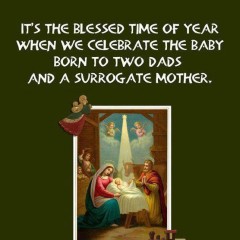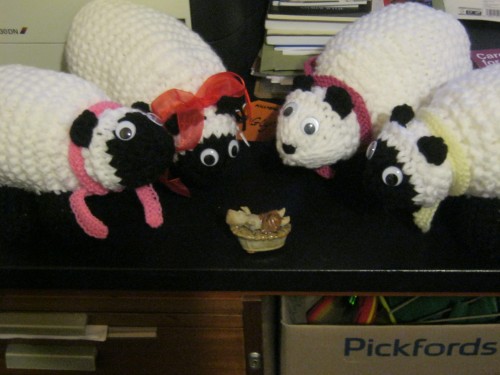Reflective post to come later today.
Decided last night to put up my Christmas tree - with all the elan* and aplomb* of a five year old never mind an almost fifty year old:
Today is the Grand Finale of our Christmas Sheep Trail and I really hope despite the pouring rain people venture out with their children to claim their prizes and particpaite in our Get in the Picture event.
I will leaving home very soon loaded with fairy lights, dressing up stuff and GSOH.
It will be super fun. if you are nearby do drop by...
* Now that 'big' words are re-emerging in my brain it would be rude not to use them!!


 Four of our flock gather round the infant Jesus from our nativity set...
Four of our flock gather round the infant Jesus from our nativity set...